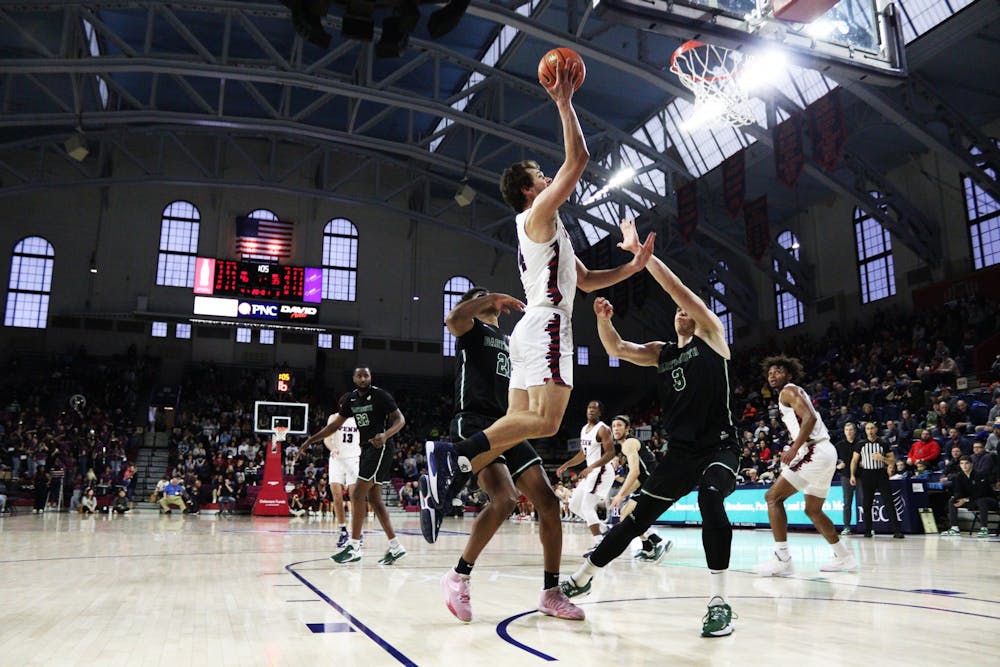Every college sport has a goal that can be expressed in two or three words; it can be a place, a date, or something else entirely, but it stands as an eternal shorthand for success. Baseball has Omaha, football has New Year's Day, men's lacrosse has Memorial Day. In basketball, that key word is March. Penn's path to it is now clearer than ever.
Over the course of the team's recent eight-game win streak, Penn men's basketball has played some of its best basketball in years. The offense has shown up big, the defense has gotten stops when it needs to, and most importantly, many players are contributing.
Earlier this season, Penn's offense was based nearly entirely around its backcourt starters, junior guards Jordan Dingle and Clark Slajchert. When Dingle wasn't an offensive dynamo and Slajchert's shots weren't falling, the Quakers struggled mightily. This was no more apparent than in the season opener — a 28-point loss to Iona — where the two combined for just 18 points on 5-22 shooting from the field.
But over the course of the last month, Penn has been able to adapt when the two guards aren't at their peaks. Part of it has been that the team has been getting healthier — sophomore guard George Smith missed a month with a facial injury and has had three of his best offensive performances over the course of the win streak.
Another part is that people are stepping up. For one example, senior guard Lucas Monroe is running a lot of the offense and has an assist-to-turnover ratio of nearly two in the course of this season. Arguably his best performance of the season came early in February versus Cornell, where he notched 12 points, 13 rebounds, five assists, and zero turnovers in 26 minutes of what was the Quakers' highest-scoring game this year.
Some credit should also go to coach Steve Donahue, who has done a better job of managing the minutes when Dingle isn't on the floor. There's no denying that Dingle's the heart of the team and its best player. But earlier in the season, Donahue seemed to rely on the junior guard too much, and as a result his fatigue was visible at the end of games.
More recently though, through skillful rotations of Monroe, Smith, and sophomore forward/center Nick Spinoso shouldering more offensive workload, Donahue has leaned less on his star and kept the team competitive when he sat.
However, some of the factors that have won Penn all these games aren't as reliable. Shooting is variable, but it can be controlled to an extent. While some of it is random, the team can work to give its better shooters better looks from the floor.
RELATED:
Penn men's basketball tops Dartmouth 89-79 in physical matchup
Penn men's basketball clinches Ivy Madness berth following weekend wins
All of these reasons — the excellence of players beyond Dingle and Slajchert, improved management of rotations, and better shooting — should all be sustainable for the rest of the season. But there's one last factor, which Penn won't have at its disposal any more: home-court advantage.
Six of the games on the win streak were at the Palestra, where Penn is 11-4 this year. Unfortunately for the Quakers, their time at home is done. The final regular season game is at Princeton, as is the Ivy League Tournament on March 11-12. Success at home has gotten Penn this far, but if they want to take home an Ivy League title, the team will need to go into someone else's house and take home Ws.









